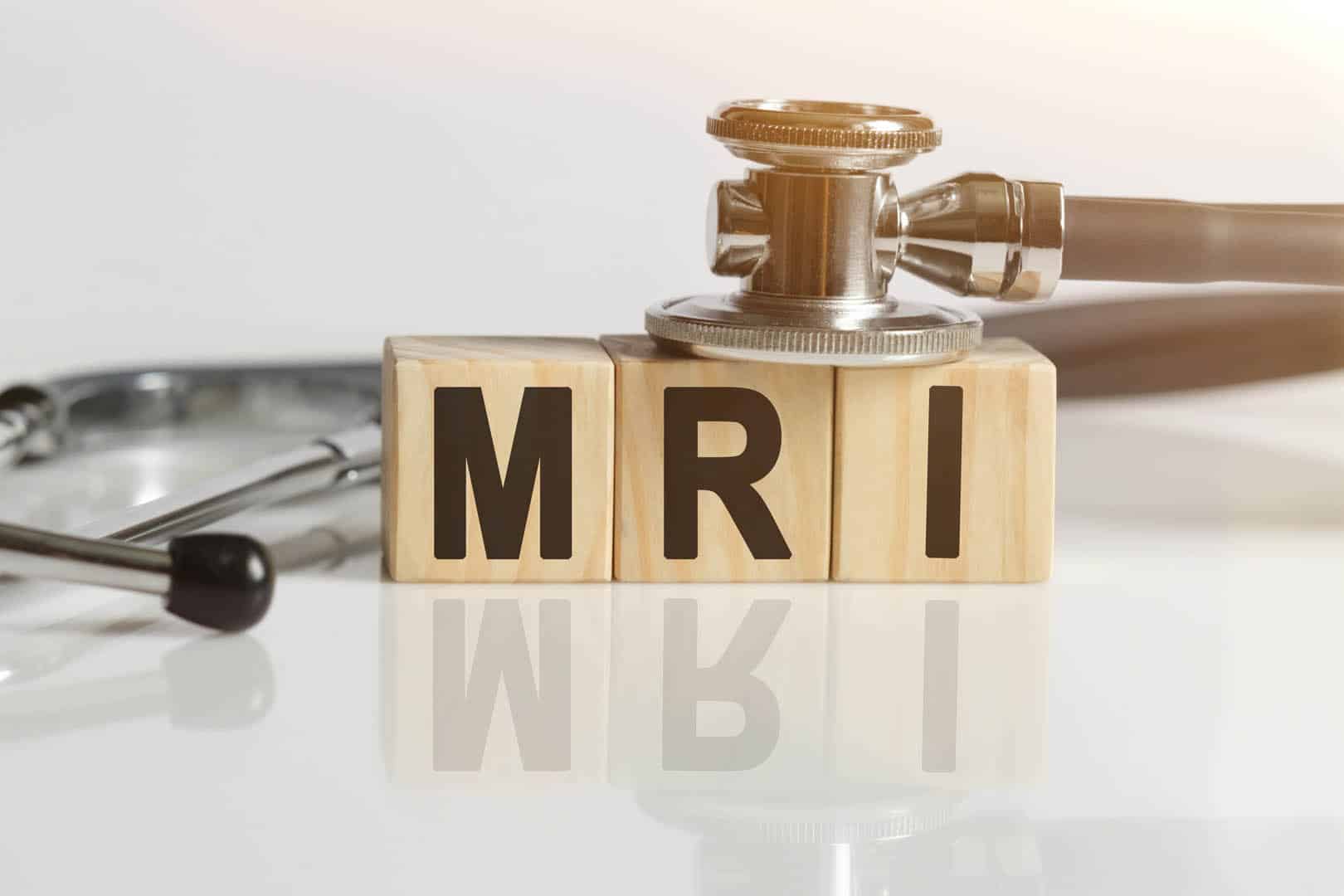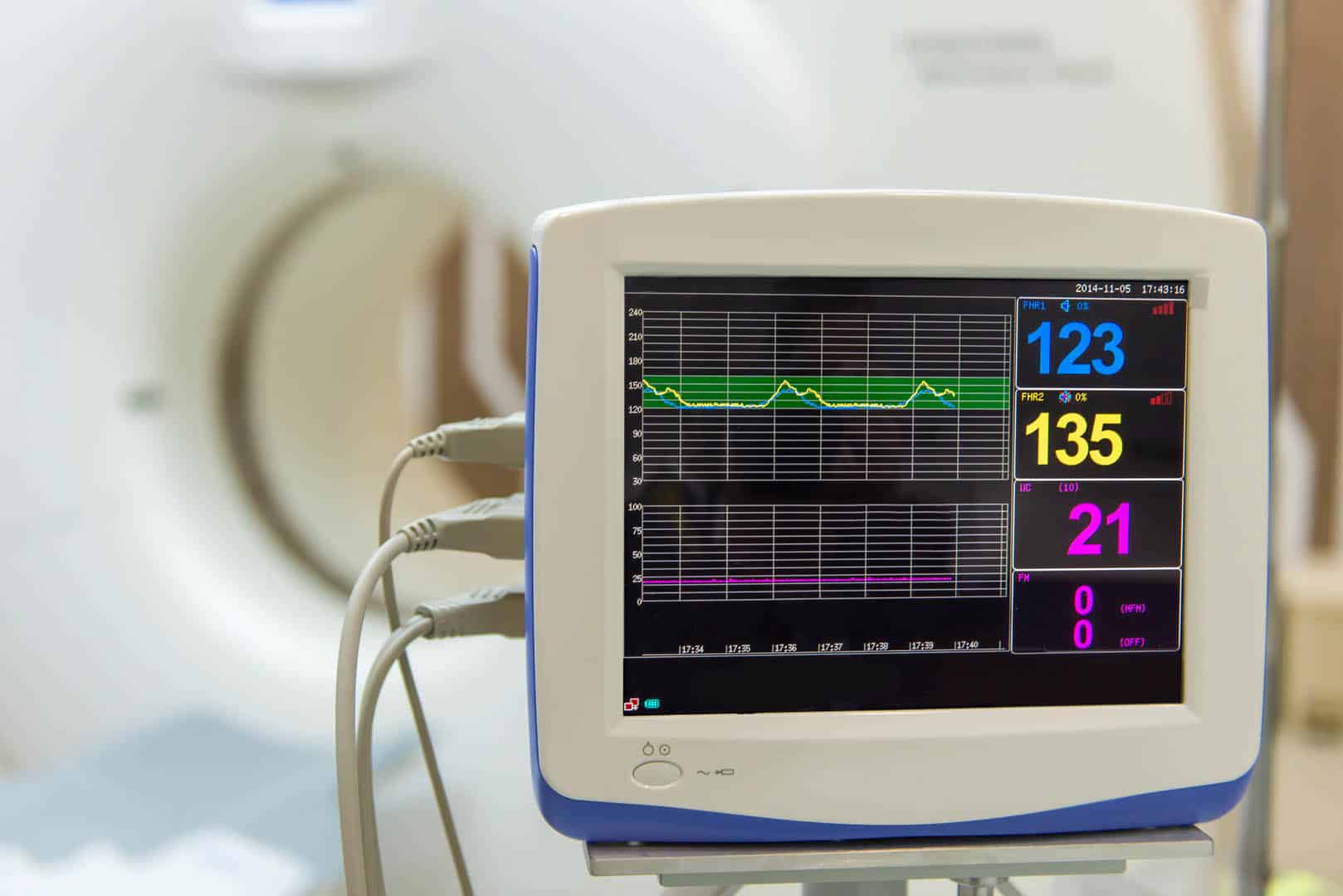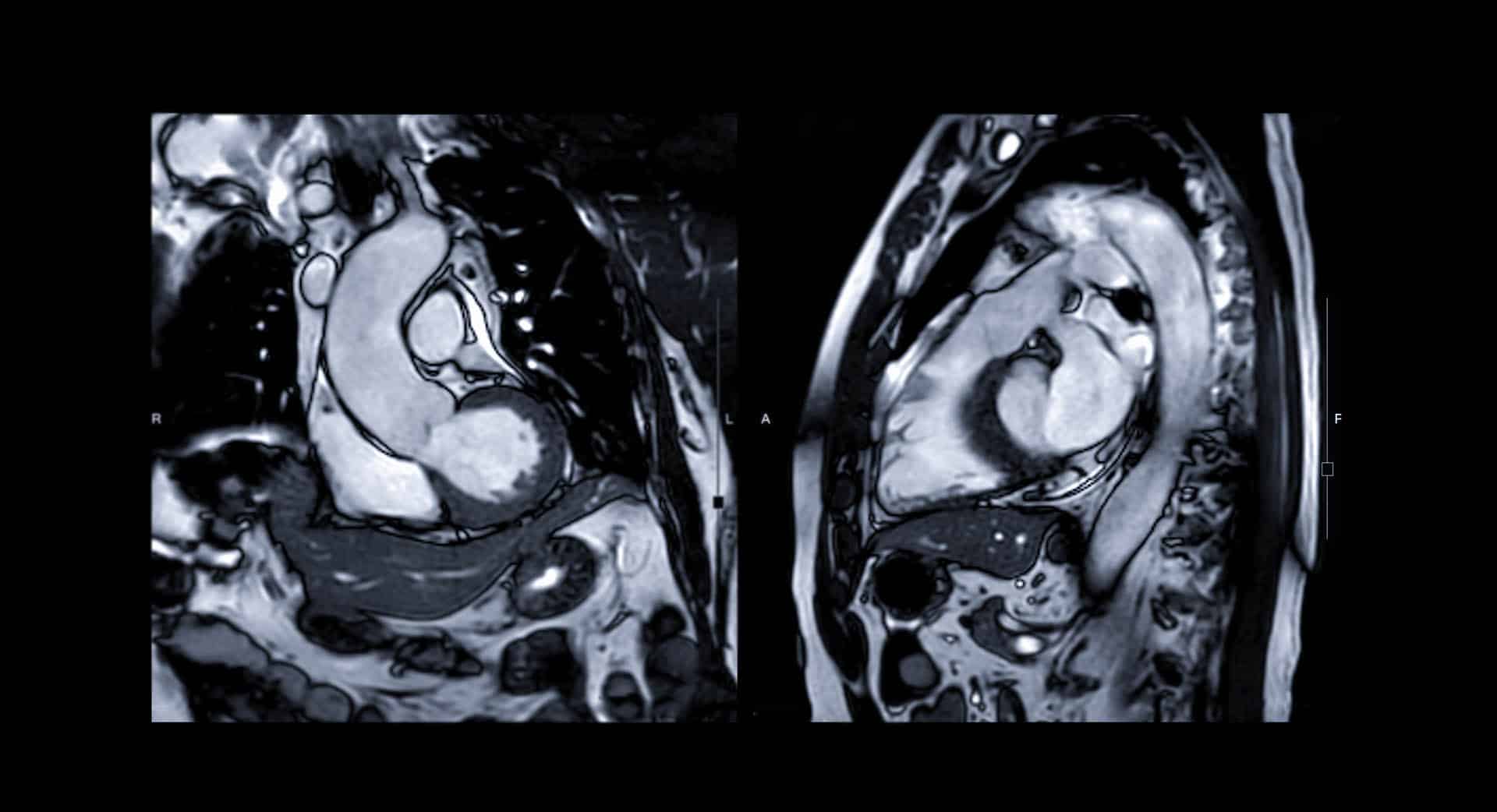Cardiac MRI Scan
A cardiac MRI study is often a key part of determining the health of your heart and planning treatment for heart disease. If cardiac MRI is applicable to your health situation, Dr Jordan will advise you of this at the time of your consultation. You will then have the opportunity to discuss the possibility of undergoing a cardiac MRI scan with Dr Jordan in detail, before the scan is booked.
General Introduction
MRI is a form of cross-sectional imaging, similar to CT scanning, which enables detailed images of your heart to be acquired. However, unlike a CT scan, MRI does not involve x-rays (ionising radiation) and therefore has never been associated with an increased risk of cancer. Since its inception and development, it is these advantages of MRI which have led to it becoming a key diagnostic tool in modern healthcare.
At present, the cardiovascular magnetic resonance test is not able to routinely see inside the arteries of your heart, though it can be used to examine for any blockages within these arteries by using a stress MRI scan component. In addition, cardiac MRI is regarded as the gold standard to assess heart disease in terms of the sizes of the chambers within your heart and their pumping function. Contrast imaging and other techniques allow Dr Jordan to assess for the presence of disease or scar within your cardiac muscle, which can play a critical role in determining your correct diagnosis and planning appropriate treatment (including surgery, in selected cases).
The MRI Test Process
During the tests, a magnet is used to allow us to create pictures of your heart. This magnet has the appearance of a narrow tube; your heart will be in the middle of this tube to allow pictures to be taken. However, throughout your cardiovascular mri scan, you will be in communication with the team performing the scan for you. You will also be provided with an emergency buzzer, for use if you would like to be taken out of the tube quickly for any reason.
The cardiac MRI test will also be relatively noisy – you will be provided with earplugs and headphones so that you do not find this uncomfortable but can still communicate with the operators easily.
If you have specific requirements in terms of which hospital locations you can attend for your cardiac MRI scan, please discuss this with Dr Jordan at the time of your consultation.
Who Needs a Cardiac (Cardiovascular Magnetic Resonance) Scan?
An MRI heart scan is used either to determine whether you have heart disease or assess the extent of heart disease present to select the best treatment option for you.
Specifically, a cardiac MRI scan is often used to determine whether blockages within your heart’s arteries are severe enough to suggest that either a stent or even bypass graft surgery should be considered. Cardiac MRI is also ideally placed to monitor treatment progress for individuals with heart muscle disease (cardiomyopathy) and to determine the cause of the cardiomyopathy itself. Given its ability to accurately assess the right-sided chambers within your heart, cardiac MRI is the optimal imaging technique for the assessment of right-sided heart problems and people with abnormalities within their heart from birth (congenital heart disease).
Using specifically-designed cardiac imaging sequences, MRI can also be used to diagnose heart valve problems and accurately assess their severity.
Preparing for your Test
If your test is a stress cardiac scan, you will need to refrain from all caffeinated food and drink for 48 hours prior to your scan date. This includes decaffeinated tea and coffee, which contain small amounts of caffeine.
Just before you enter the MRI room at the hospital, you will need to remove all metal items from your body. If you have any items which are not removable or are implanted (such as artificial joints) these will be checked by a member of the team to ensure you are still safe to undergo the scan.
The test can only be undertaken within a small range of hospitals in the local area, who have the necessary scanner facilities and personnel to enable this form of specialist heart imaging. At present, heart scan locations are limited to the Nuffield Hospital (Bournemouth) or within the MRI departments of Poole or Bournemouth Hospitals.
Results and Treatment
Your results will be available after detailed analysis of the images acquired. Usually this will be after less than 24 hours for a private cardiac MRI scan, though longer periods of time are needed in exceptional circumstances, for example if your images need to be examined by another healthcare professional (such as a radiologist)
Shortly after your cardiac MRI scan and once your results have been finalised, an appointment will be arranged to discuss the findings in detail, including any implications in terms of the health of your heart and treatments which will be available to you.
Why choose a private test?
By choosing to undergo your MRI scan as a private patient, you can be sure that Dr Jordan will be present during the scanning procedure. This not only means a familiar face in the department on the day of the scan – he will be able to actively review the images taken of your heart in real-time and advise on adjustments to technical parameters or a change to the scanning protocol as required. Dr Jordan will also report the scan himself, rather than needing to delegate this to another doctor, as can be the case within the NHS. It must also be considered that the waiting time for an MRI scan can be significantly reduced by opting for a private test, enabling faster diagnosis and treatment for your heart condition.
Frequently Asked Questions
How long does it take to do a cardiac MRI?
Cardiac MRI studies generally take between 45-60 minutes. However, the length of scan can vary beyond this, depending on your underlying condition.
How long does a cardiac MRI with contrast take?
Most MRI studies are conducted with contrast (Gadolinium) and last between 45-60 minutes.
How is a heart MRI done?
MRI scans are conducted within a strong (1.5-3.0T) magnet. Breathing instructions are provided throughout the scan to ensure that clear pictures are obtained.
What does a cardiac MRI show?
Cardiovascular Magnetic Resonance tests are the gold standard investigation for the size and function of all the chambers within your heart. The scan can also be used to investigate the blood supply to your heart and whether there is any scarring or swelling within your heart muscle. This is different to the echocardiogram which reveals the function of both the heart and its connected valves.
What does cardiac MRI diagnose?
Cardiac tests are an important tool for the diagnosis of structural heart disease, cardiomyopathy and blood supply problems to your heart (coronary artery disease) in particular. It is also key to ascertain whether you have a normal heart rhythm, and pinpoint the potential presence of an atrial septal defect.
Is a cardiac MRI painful?
MRI scans are not painful, though some individuals can find the experience claustrophobic. Please speak to one of your team before your scan if you think that this may be the case for you.
Is a heart MRI serious?
Heart MRI scans are used to diagnose a range of heart problems and are therefore not necessarily serious.
Can you eat or drink before a cardiac MRI?
In general, you can eat and drink normally before a cardiac MRI scan. However, if you are scheduled to undergo a stress scan, looking at the blood supply to your heart, we ask that you refrain from all caffeinated food and drink (including tea, coffee, cola, chocolate and even decaffeinated tea/coffee) for 48 hours prior to your scan.
How long does it take to get cardiac MRI results?
The scan can take up to 1-2 hours to fully analyse, though Dr Jordan ensures that he completes this on the same day as your scan, should he be personally supervising the scan.
DORSET SELF-FUNDING CONSULTATION TARIFFS
Initial appointment: £220 | Follow-up appointment: £150
Or Contact Dr Jordan’s PA directly: 01202 096996


